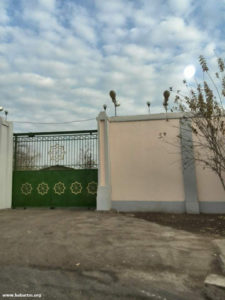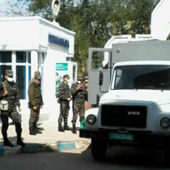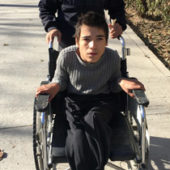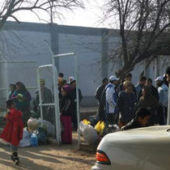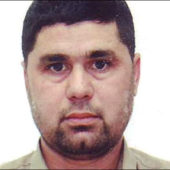Getting information from the closed-off Turkmenistan has recently become difficult, and getting a glimpse of what’s happening beyond the barbed wire is almost impossible. However, ATN already has experience in covering such topics. Recently published reports on the Baloch community and the case of Mansur Mingelov, interviews with former inmates – a Kazakhstan national Erik Supushev and a Russian national Stanislav Romaschenko — give a picture of the state of Turkmen prisons. In addition, ATN is often approached by families of sentenced persons, who tell about the situation in a specific prison. These reports are often associated with some critical emergencies.
ATN has recently received testimonies from women who served their sentences at different times in the only women’s colony in Turkmenistan. Today’s story is entirely based on testimonies of these eyewitnesses.
Female camps: the old and the new
Before 2013 the DZ-K/8 camp was located in Dashoguz, within the city limits. Its towers around the perimeter and the barbed wire were clearly visible to everyone traveling towards Yylanly district (renamed after Gurbansoltan Eje) and Akdepe. But then, a new camp for women was built in the Karakum Desert.
«The camp is chic, a world-class facility,” former inmate Shirin shared her memories of her time in the new place. “One can’t even call it a prison really, it is more like a women’s town, and we were there as queens! One-tiered bunk beds, excellent mattresses, foam pillows. It’s clean, and most importantly, there’s no lice and cockroaches, which couldn’t be said about the old prison.»
The new camp is much bigger than the old one. While the old camp was designed for 700 people, the new one can accommodate 4,000 simultaneously. According to Shirin, «the entire female population of Turkmenistan could fit here.» The area is so huge that the staff travels around by bicycles.
The woman was convicted more than once. In total, she served a large sentence. Most of it Shirin spent in the old camp, but she got a taste of the new one as well. When comparing the two camps, Shirin said that up until 1996 the old one had a mother and child facility, and women who gave birth while serving a sentence, could see their babies, visit them, take them for walks, and feed them. But later, the MCF was closed, and children were sent to infant orphanages all over the country. Now the authorities again want to allow women to be with their babies.
Three types of confinement and punishment cells
Until 2011 there were three types of confinement for female inmates: minimum, medium and maximum (special) security. In 2011-2012 most inmates were released with the exception of the «heavyweights», that is, women convicted for serious crimes. The special security confinement was replaced with medium security. For each type of confinement, everything is different: meeting rooms, prison hospitals and work places. Women with different types of confinement do not intersect.
The camp has about 50 units. Four of them are of the two highest security types: units 17, 18, 19 and 20. About 440 women serve there. None of them can be released on parole. They will serve their terms till the end. Their crimes are heavy: murder, robbery, extortion, drug trafficking.
Family visits are allowed once a month for minimum security inmates, and once every two months for other types of confinement. Family members of inmates that are originally from Dashoguz visit the camp and bring parcels more often. To justify the long trip to the camp, they resell food. Flat bread, which normally costs one manat, is sold here at three. Women who have money buy it, because nothing is like home-made bread.
Those who commit an offense face serious penalties: from medium security barrack they are taken to punishment cells. One can end up in a punishment cell for expressing dissatisfaction with food or other conditions, for wearing improper clothes, for appearing without a headscarf or a name tag. In summer inmates wear light-colored headscarves, and thick black scarves in winter.
Being locked up in a punishment cell is a disaster for a woman. Firstly, it is extremely cold in there: walls and the floor are made of concrete. Secondly, the guards take away their jackets, leaving women in a robe and underwear. The guards don’t even allow socks. Thirdly, women experience «true suffering» without personal hygiene items during menstruation.
The punishment cells have nothing but an iron bed without bedding. Climate control systems are mounted on the wall, and as an additional punishment, the guards can turn on cooling in winter and heating in summer. Furthermore, they turn up the music to maximum volume, which makes one’s eardrums “explode.”
On November 21-22 2016, in Geneva, the UN Committee against Torture will hear Turkmenistan’s report on implementation of the Convention against Torture. ATN will bring to the attention of the Committee the above and other recent evidence of torture and ill-treatment of suspects and inmates.
According to Shirin, women do not allow themselves many of the things men are prepared to do when fighting for justice, such as hunger strikes or bloodletting.
«It is very hard to endure any punishment, especially in the punishment cells. It’s definitely not a place for women,» she said.
Cancer — №1 cause of death
Another ex-convict, Anna, told ATN about health issues women face in the camp.
«Tuberculosis is an issue, but not as big as cancer. It is a scourge of the camp. Cancer of female organs and breast cancer are very common there,» Anna said.
Most of those who fall ill and die of cancer are women of childbearing age. Particularly high incidence can be found among inmates in medium and maximum security facilities. Both Anna and Shirin said that every month 1-2 women die of breast or uterine cancer. While medical care in the new camp is better than in the old one, healthcare remains rather poor. None of the camp staff takes particular care of the sick or seeks to provide inmates with treatment in a specialized clinic. The disease is usually diagnosed at a late stage and quickly takes the doomed inmate to the grave… But 80-year-old women are often in good health, for their age.
Commissions, inspections, «shakedowns»
In 2012, foreign diplomats and representatives of the Red Cross visited the camp. The trip was organized at the top level, from start to finish, and was following a strict plan. The foreign guests were allowed to talk only to those women who had been prepared in advance, and knew what to say and how to answer questions. The Red Cross staff and the diplomats were not allowed to choose whom to speak to. Before their arrival, the management had a “preventive talk” with the women.
«They literally told everyone: «The foreigners will leave, and you will stay.» So none of us dared to say what we might have wanted to say,” Anna said.
She said that she had once served her time with a woman, whose son held some high office. He had officially denounced his mother to avoid troubles at work, but when she had problems, she called him and soon enough a commission would come to the camp.
«One should have seen what happened then! The guards didn’t care why and because of whom the commission came from Ashgabat, we all equally suffered. As a punishment we were kept in the cold or in the heat. Some old women fell… And then we would curse this woman, because of her complaints we all had to suffer,” she said.
“Shakedowns” happen in the camp more often than commissions and inspections visit the place. They search for unauthorized clothing or food and confiscate it.
«The yell at us that we aren’t allowed prohibited items but no one throws them to us from a helicopter. All prohibited items come from family visits, making their way through the guards. So imagine how bad we felt: our families were pinching and scraping to send it all to us, and these assholes would take it for themselves…»
Entertainment in prison
A woman, no matter if she is in prison or not, always remains true to herself. She wants to be beautiful, she wants to have fun, to dance, and, of course, she wants love. All of this is available in the camp. Some go to the gym, watch their waistlines or their health. Many enjoy club dancing. The camp has a theater, where they stage plays at public holidays, perform sketches. People go to premieres with pleasure.
Love is also not uncommon, but for some reason, both ATN sources preferred not to delve into this subject, saying only that if there is demand, there will always be supply.
Daily routine and work
The wake-up is at 6 a.m. Until 7 o’clock women do morning exercises and make up their beds. Then there is breakfast. At 8 o’clock everyone has to go outside and line up no matter if it is raining or snowing or it is burning hot: the check-up is obligatory for all. At 8:30 those who work go to the shops, others remain in formation till 9 a.m. Then inmates clean the territory. Lunch is from noon to 1 p.m., after which women have free time.
Those who work, do it in different shops, such as a shoe shop, where they make high quality men’s shoes. There is a flour shop, and a shop producing printed bed linen. Working is not mandatory. Those who do not wish to work, or who are supported by relatives, do not do a thing. Families transfer money to the prison store where women can buy necessary goods. Those who work get little for their labor.
Gurbanbibi Atajanova, the former Attorney General
There is a place in the new camp where Gurbanbibi Atajanova is serving her term. She used to be the all-powerful Attorney General in the times of president Niyazov. Her place is isolated from the main camp, but inmates can see this short, hunched and considerably aged woman who used to terrify people, from afar. She gets family visits once every six months, and that is the moment when she is taken outside and other inmates can catch a glimpse of her from distance. The former Attorney General is kept like a particularly dangerous criminal, and is taken out with an escort. Rumors that Atajanova died or committed suicide are just rumors: she is alive and continues serving her sentence.

